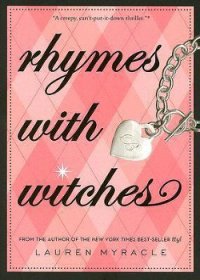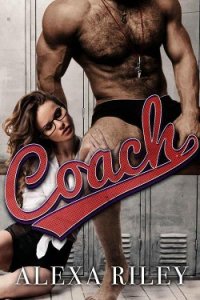The Silver Chair - Lewis Clive Staples (читать полные книги онлайн бесплатно .txt) 📗
“Where has the thingummy got to, I wonder?” said Jill.
“The Marsh-wiggle,” said Scrubb, as if he were rather proud of knowing the word. “I expect-hullo, that must be him.” And then they both saw him, sitting with his back to them, fishing, about fifty yards away. He had been hard to see at first because he was nearly the same colour as the marsh and because he sat so still.
“I suppose we'd better go and speak to him,” said Jill. Scrubb nodded. They both felt a little nervous.
As they drew nearer, the figure turned its head and showed them a long thin face with rather sunken cheeks, a tightly shut mouth, a sharp nose, and no beard. He was wearing a high, pointed hat like a steeple, with an enormously wide flat brim. The hair, if it could be called hair, which hung over his large ears was greeny-grey, and each lock was flat rather than round, so that they were like tiny reeds. His expression was solemn, his complexion muddy, and you could see at once that he took a serious view of life.
“Good morning, Guests,” he said. “Though when I say good I don't mean it won't probably turn to rain or it might he snow, or fog, or thunder. You didn't get any sleep, I dare say.
“Yes we did, though,” said Jill. “We had a lovely night.”
“Ah,” said the Marsh-wiggle, shaking his head. “I see you're making the best of a bad job. That's right. You've been well brought up, you have. You've learned to put a good face on things.”
“Please, we don't know your name,” said Scrubb.
“Puddleglum's my name. But it doesn't matter if you forget it. I can always tell you again.”
The children sat down on each side of him. They now saw that he had very long legs and arms, so that although his body was not much bigger than a dwarf's, he would be taller than most men when he stood up. The fingers of his hands were webbed like a frog's, and so were his bare feet which dangled in the muddy water. He was dressed in earthcoloured clothes that hung loose about him.
“I'm trying to catch a few eels to make an eel stew for our dinner,” said Puddleglum. “Though I shouldn't wonder if I didn't get any. And you won't like them much if I do.”
“Why not?” asked Scrubb.
“Why, it's not in reason that you should like our sort of victuals, though I've no doubt you'll put a bold face on it. All the same, while I am a catching of them, if you two could try to light the fire—no harm trying—! The wood's behind the wigwam. It may be wet. You could light it inside the wigwam, and then we'd get all the smoke in our eyes. Or you could light it outside, and then the rain would come and put it out. Here's my tinder-box. You won't know how to use it, I expect.”
But Scrubb had learned that sort of thing on his last adventure. The children ran back together to the wigwam, found the wood (which was perfectly dry) and succeeded in lighting a fire with rather less than the usual difficulty. Then Scrubb sat and took care of it while Jill went and had some sort of wash—not a very nice one—in the nearest channel. After that she saw to the fire and he had a wash. Both felt a good deal fresher, but very hungry.
Presently the Marsh-wiggle joined them. In spite of his expectation of catching no eels, he had a dozen or so, which he had already skinned and cleaned. He put a big pot on, mended the fire, and lit his pipe. Marsh-wiggles smoke a very strange, heavy sort of tobacco (some people say they mix it with mud) and the children noticed the smoke from Puddleglum's pipe hardly rose in the air at all. It trickled out of the bowl and downwards and drifted along the ground like a mist. It was very black and set Scrubb coughing.
“Now,” said Puddleglum. “Those eels will take a mortal long time to cook, and either of you might faint with hunger before they're done. I knew a little girl—but I'd better not tell you that story. It might lower your spirits, and that's a thing I never do. So, to keep your minds off your hunger, we may as well talk about our plans.”
“Yes, do let's,” said Jill. “Can you help us to find Prince Rilian?”
The Marsh-wiggle sucked in his cheeks till they were hollower than you would have thought possible. “Well, I don't know that you'd call it help,” he said. “I don't know that anyone can exactly help. It stands to reason we're not likely to get very far on a journey to the North, not at this time of the year, with the winter coming on soon and all. And an early winter too, by the look of things. But you mustn't let that make you down-hearted. Very likely, what with enemies, and mountains, and rivers to cross, and losing our way, and next to nothing to eat, and sore feet, we'll hardly notice the weather. And if we don't get far enough to do any good, we may get far enough not to get back in a hurry.”
Both children noticed that he said “we”, not “you”, and both exclaimed at the same moment. “Are you coming with us?”
“Oh yes, I'm coming of course. Might as well, you see. I don't suppose we shall ever see the King back in Narnia, now that he's once set off for foreign parts; and he had a nasty cough when he left. Then there's Trumpkin. He's failing fast. And you'll find there'll have been a bad harvest after this terrible dry summer. And I shouldn't wonder if some enemy attacked us. Mark my words.”
“And how shall we start?” said Scrubb.
“Well,” said the Marsh-wiggle very slowly, “all the others who ever went looking for Prince Rilian started from that same fountain where the Lord Drinian saw the lady. They went north, mostly. And as none of them ever came back, we can't exactly say how they got on.”
“We've got to start by finding a ruined city of giants,” said Jill. “Aslan said so.”
“Got to start by finding it, have we?” answered Puddleglum. “Not allowed to start by looking for it, I suppose?”
“That's what I meant, of course,” said Jill. “And then, when we've found it-”
“Yes, when!” said Puddleglum very drily.
“Doesn't anyone know where it is?” asked Scrubb.
“I don't know about Anyone,” said Puddleglum. “And I won't say I haven't heard of that Ruined City. You wouldn't start from the fountain, though. You'd have to go across Ettinsmoor. That's where the Ruined City is, if it's anywhere. But I've been as far in that direction as most people and I never got to any ruins, so I won't deceive you.”
“Where's Ettinsmoor?” said Scrubb.
“Look over there northward,” said Puddleglum, pointing with his pipe. “See those hills and bits of cliff? That's the beginning of Ettinsmoor. But there's a river between it and us; the river Shribble. No bridges, of course.”
“I suppose we can ford it, though,” said Scrubb.
“Well, it has been forded,” admitted the Marsh-wiggle.
“Perhaps we shall meet people on Ettinsmoor who can tell us the way,” said Jill.
“You're right about meeting people,” said Puddleglum.
“What sort of people live there?” she asked.
“It's not for me to say they aren't all right in their own way,” answered Puddleglum. “If you like their way.”
“Yes, but what are they?” pressed Jill. “There are so many queer creatures in this country. I mean, are they animals, or birds, or dwarfs, or what?”
The Marsh-wiggle gave a long whistle. “Phew!” he said. “Don't you know? I thought the owls had told you. They're giants.”
Jill winced. She had never liked giants even in books, and she had once met one in a nightmare. Then she saw Scrubb's face, which had turned rather green, and thought to herself, “I bet he's in a worse funk than I am.” That made her feel braver.
“The King told me long ago,” said Scrubb—“that time when I was with him at sea-that he'd jolly well beaten those giants in war and made them pay him tribute.”
“That's true enough,” said Puddleglum. “They're at peace with us all right. As long as we stay on our own side of the Shribble, they won't do us any harm. Over on their side, on the Moor—Still, there's always a chance. If we don't get near any of them, and if none of them forget themselves, and if we're not seen, it's just possible we might get a long way.”



